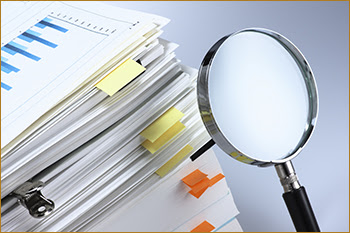Time to Start Preparing
While most see January as the start of something new, you should also see it as a time to start the collection of your prior year information. Here are some things to consider:
Receive and Review Informational Tax Forms. Create a list of all your anticipated W-2s, 1099-MISC, 1099-DIV, 1099-B, and SSA-1099s. Check them off as you receive them, but not before confirming the information is accurate. |  |
| Be aware of other informational tax form needs. Here are some of the more common. |
 | W2-G for any gambling winnings |
 | 1099-G for any tax refunds or unemployment payments |
 | 1099-K for any credit card activity over $20,000 and 200 transactions. Look for this if you are a heavy seller on sites like Amazon or E-bay. |
Don't forget your 1098s. Like 1099's, Form 1098's provide information to help maximize your possible tax deductions. Here are some of the most common.
 | 1098 mortgage interest statement |
 | 1098-T for confirmation of tuition and fee payments to colleges and universities. |
 | 1098-C for confirmation of the value of contributed property like a used car to a charitable organization. |
 | 1098-E to report any student loan interest |
The NEW 1095. Most taxpayers will now need to provide proof of adequate health insurance. This proof will be required to file your tax return and is typically done using Form 1095. Your employer will usually provide this to you if you are not purchasing insurance through Medicare or through the new Federal Affordable Care Act marketplace. Please be aware of this new form and look for it.
Other records; Collect your receipts and sort them. Using last year's tax return, begin to gather and sort your necessary tax records. Sort your tax records to match the items on your tax return. Make sure you have the necessary documentation. Here is a master list of the more common in no particular order:
 | Informational tax forms (W-2, 1099, 1098, 1095-A, plus others) that disclose wages, interest income, dividends, and capital gain/loss activity |
 | Other forms that disclose possible income (jury duty, unemployment, IRA distributions and similar items) |
 | Business K-1 forms |
 | Social Security records |
 | Mortgage interest statements |
 | Tuition paid statements |
 | Property tax statements |
 | Mileage log(s) for business, moving, medical, and charitable driving |
 | Medical, dental and vision expenses |
 | Business expenses |
 | Records of any asset purchases and sales |
 | Health insurance records (including Medicare and Medicaid) |
 | Charitable contribution receipts and documentation |
 | Bank and investment statements |
 | Credit card statements |
 | Records of any out of state purchases that may require use tax |
 | Records of any estimated tax payments |
 | Home sales records |
 | Educational expenses (including student loan interest expense) |
 | Casualty and theft loss documentation |
 | Moving expenses |
 | Retirement contribution records |
Remember, if in doubt whether something is important for tax purposes, retain the documentation. It is better to throw unnecessary documentation out, than to wish you had the document to support your deduction. By starting now, you can identify missing items in time to meet the tax filing deadline.
|
 appy New Year! With the recent passing of the PATH Act, many temporary tax laws have been made permanent. Other popular tax laws have been extended through 2016 and beyond. A recap of the more commonly used tax benefits in this new tax law is summarized for you here. Also included is a new legally required debt collection practice for the IRS and a recap of standard mileage rates for use in 2016. All this and a reminder to start collecting your 2015 tax information round out this month's newsletter.
appy New Year! With the recent passing of the PATH Act, many temporary tax laws have been made permanent. Other popular tax laws have been extended through 2016 and beyond. A recap of the more commonly used tax benefits in this new tax law is summarized for you here. Also included is a new legally required debt collection practice for the IRS and a recap of standard mileage rates for use in 2016. All this and a reminder to start collecting your 2015 tax information round out this month's newsletter.














No comments:
Post a Comment